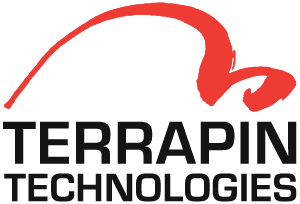Trends in Advisor Compensation in Financial Institutions
Even before Karl Marx laid it all out, there has been historical tension between labor and capital: who gets the larger share of the pie? The same holds for the financial advice industry: how much of the revenue produced by advisors do they get to keep, and how much is claimed by the firm?
Our many years of benchmarking surveys provide a window into advisor compensation trends for hundreds of bank-based firms and thousands of advisors over many years. These trends were dissected at the Fall Meeting of the Kehrer Leadership Study Group Sept 21-22 in Durham.
Trends in Financial Institution-Based Advisor Compensation
|
Effective Payout |
Average Advisor Compensation |
|
| 1995 | 31.4% | $62,447 |
| 2000 | 34.8% | $106,985 |
| 2005 | 41.0% | $109,921 |
| 2010 | 41.0% | $128,345 |
| 2015 | 41.2% | $180,242 |
| 2016 | 39.8% | $154,230 |
| 2017 | 41.7% | $150,028 |
| 2018 | 39.4% | $165,579 |
| 2019 | 39.4% | $181,044 |
| 2020 | 42.4% | $178,471 |
| 2021 | 38.9% | $213,726 |
| 2022 | 42.6% | $241,706 |
Average advisor compensation in banks and credit unions last year was 4 times the level experienced in 1995. Compensation ratcheted up in the first decade of the 21st century, and again in the second decade. Between 2015 and 2020, compensation averaged $168,266, with quite a bit of year-to-year variation.
Part of that variation may be due to differences in the sample each year – not all firms participate every year, and industry consolidation has buried many firms. But the sample size each year is sufficiently large to uncover important trends.
Compensation has ratcheted up again in this decade.
How much of this growth is due to the growth of the business, and how much is due to changes in the effective payout rate – the share of revenue actually paid to advisors?
In the early years of investment services, many advisors were essentially annuity salespeople, some with a straight payout of only 20% of revenue. As the bank and credit union financial advice community became more securities-oriented, firms adopted typical tiered payout grids and average effective payouts climbed to around 41%. Remarkably, the payout rate has been stable for over 20 years.
This is remarkable because of the much-bemoaned labor shortage in the industry. In most industries, if labor is in short supply, employers bid up wages to attract the labor they need. (Or accede to demands from organized labor, as is playing out in the auto and hospital sectors.) That appears to not have happened in banks and credit unions. Instead, firms seem to have targeted payout increases to top performers, taking slices of the pie away from poor or modest performers and paying it to top performers.
To be sure, the pie has grown each year, along with market valuations and increases in wealth, but roughly the same percentage of each year’s pie is paid out to the advisor force each year.
Technology plays a crucial role in a firm’s talent management objectives and will only continue to grow in importance, according to Kristefor Lysne, President of Terrapin Technologies. “Providing your team with a centralized platform where all revenue data is tracked and visible helps your advisors have confidence in the numbers, which is a large factor in talent retention.” “As firms focus on scaling their business,” Lysne continued, “they realize that technology is key — whether it’s aggregating held-away assets or moving away from spreadsheets to automated compensation tools.”
About the Kehrer Leadership Study Group. Executives responsible for managing investment services in financial institutions meet twice a year to share experience and insights, and dive deeper into the latest Kehrer Group research. The Fall Meeting was sponsored by Atria Wealth, Cetera Financial Institutions, Fusion IQ, LPL Financial, and Midwood Financial.

About Terrapin Technologies. Terrapin Technologies provides data and reporting solutions for wealth management firms. Terrapin’s platform automates and improves business processes across your entire firm, including compensation, compliance, and reporting. Having worked with financial institutions for over 25 years, Terrapin knows how vital your advisor workforce is to the overall success of your investment program. Terrapin’s compensation management solution gives advisors visibility into their production with dashboards and trade blotters using real-time metrics. Its all-in-one solution empowers firms to pay advisors accurately and on time. Attract and retain top talent with Terrapin Technologies. To learn more, visit www.terrapintech.com
